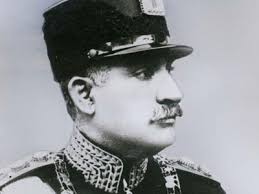At the conference on science diplomacy since World War II, one fascinating presentation was on a group of equatorial countries who in 1976 decided to claim the territory directly above their countries in space. These countries in South America, Africa and Asia were among the many non-aligned states who did not take the side of either the western democracies or the communist world.
Pointing to a mercator map with the countries proposing the pact highlighted, Gloria Maritza Gomez Revuelta, a PhD candidate at El Colegio de Mexico, said the United States and Russia were both launching satellites into geosynchronous orbits for communication and surveillance. The satellites travelled in space at the same speed as the earth's orbit so they remained in position until they fell from orbit. As this band of space filled with satellites, the countries with land underneath the satellites wanted to control the space above their land.
The pact never became reality. In the discussion after the talk, several people discussed the issue of what a country can claim as sovereign territory. Where does space begin? At the limits of the atmosphere? Higher? Gomez Revuelta said Hannah Arendt said politics is part of life on earth.
Arendt opens her book The Human Condition by saying it was an event “second in importance to no other.” Sputnik meant that human beings had taken a real step toward actualizing a long-wished-for goal: to escape the earth. In Arendt’s telling of the story, earth alienation is part and parcel of the all-too-human dream of freeing ourselves from our humanity. Sputnik’s launch thus signified not simply the lowering of humanity’s stature, but humanity's destruction of humanity itself. (from the Hannah Arendt Center at Bard College)
The discussion continued raising serious issues, and also the issue of how far into space could an equatorial country claim territory? The solar system? The Milky Way? The entire universe?
The discussion continued at lunch about Hannah Arendt and space and the Cold War and world politics today.







